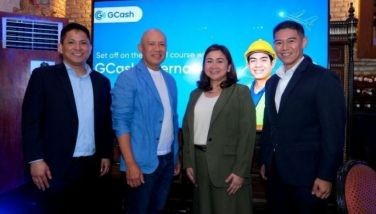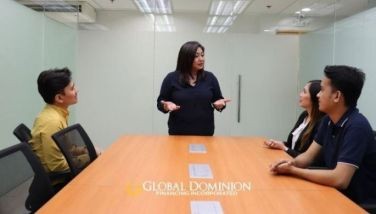Google: Empowering communities, helping people
MANILA, Philippines - If there’s anything impressive about Aileen Apolo-de Jesus, it’s the fact that she is the head of Google’s Outreach for Southeast Asia — and yes, she’s a Filipina.
Because of her role, Aileen shuttles between nine countries — Philippines, Malaysia, Thailand, Indonesia, Singapore, Sri Lanka, Bangladesh, Pakistan, and Vietnam — to manage and train Google communities and ensure that programs are useful to these communities. “What we do in Outreach in Google is we take care of the communities, incubate and train them, and see what things we could do so that the constituents or users joining this community could benefit from them,†she says.
Needless to say, the Philippines is closest to her heart. “Because I’m Filipino, it’s easier for me to relate to the communities here and find out their needs. Also, this is where our communities are most vibrant,†explains Aileen, who has been with Google for the past seven years.
According to her, the Outreach team of Google spends a lot of time with these communities. “When I started things back in 2007, we really listened to what they needed and then we crafted the programs. Every quarter, we try to assess how we can do better to help and support these communities. We assess the program several times a year to make sure we’re actually giving them what they need to support them.â€
Aileen and her team takes care of four communities: The Google Business Group (GBG), Google Student Ambassadors (GSA), Google Educators Group (GEG), and Google Map Maker Team.
GBG is a community of business professionals sharing knowledge about Google web technologies for business success. The group holds regular meetups and organizes the annual GDayX where speakers teach entrepreneurs how to use different online tools to improve their business. Topics vary from AdWords to Google Apps. GBG also organizes events specifically for women, the Women on the Web (WOW) program. “We coach them on how to organize these events and help them find speakers,†says Aileen.
Meanwhile, GSAs act as a liaison between their university and Google and teach their fellow students how to use different Google tools that could be useful in their studies. Students who want to become part of the GSA need to apply and go through a stringent process of selection, which Aileen oversees. This year, more than a hundred students across Southeast Asia were welcomed into the community.
“We are piloting the GEG in the Philippines, which is meant for K to 12 educators. We’re hosting teacher workshops in Baguio, Manila, and Cebu. From these workshops, we hope to get leaders for the GEG so they can start their own community in their own cities,†explains Aileen.
Aileen’s team is helping the Google Map Maker Team conduct MapUps where communities come together to map. “One of the most useful things and a lot of people really benefit from is the mapping program. It’s the communities now taking the lead with mapping because they saw how important it is.†Aileen says the mapping project has actually helped in other activities. “It’s not just about helping other people find where they’re going but also having good and accurate maps help in crisis response, elections, and many other things depending on what the community sees as useful for them.â€
Aileen recalls that when they launched Google Map Maker in 2008, the Philippine map was almost blank. So she and her team enabled local users to contribute and pin important landmarks, businesses, buildings, schools, among others, in the Philippine map as “we’ve always believed that it’s the local users who know their neighborhood best.â€
Google Maps have also become a useful tool in calamities. Before Yolanda’s wrath, the communities, led by the group in Cebu, took the initiative to map the evacuation centers people can go to for shelter. On the day Yolanda made landfall, the community in Cebu turned over the mapping to other communities because they also anticipated losing their electricity and Internet connection. So Aileen got in touch with the other communities to make sure the base map is always updated.
For Aileen, it’s important to thank the communities who continue to build the base map because it has helped many a rescue and relief operation in the areas hardly hit by Typhoon Yolanda. She shares that when rescuers go to an affected area, they turn to Google Maps because they don’t know the area or the location is extremely flooded so it’s difficult for them to find people who have asked to be rescued.
Another Google initiative in the aftermath of the typhoon is the Person Finder, a web-based application that allows individuals to check and post the status of relatives or friends affected by Yolanda. “What we did in Google because we saw that a lot of people are missing, we put up the Person Finder. We know there are a lot of Filipinos who live abroad and who are worried. What the Person Finder can do is to connect people to know the status of their family back home,†she explains.
Google, a power brand in itself, empowers the community by training them to be able to help themselves and the people in their communities. “As we always tell the communities, it’s about them. The best that Google can do for them is to provide the platform. It’s really about them learning how to use all these tools for their benefit,†concludes Aileen.
- Latest






























